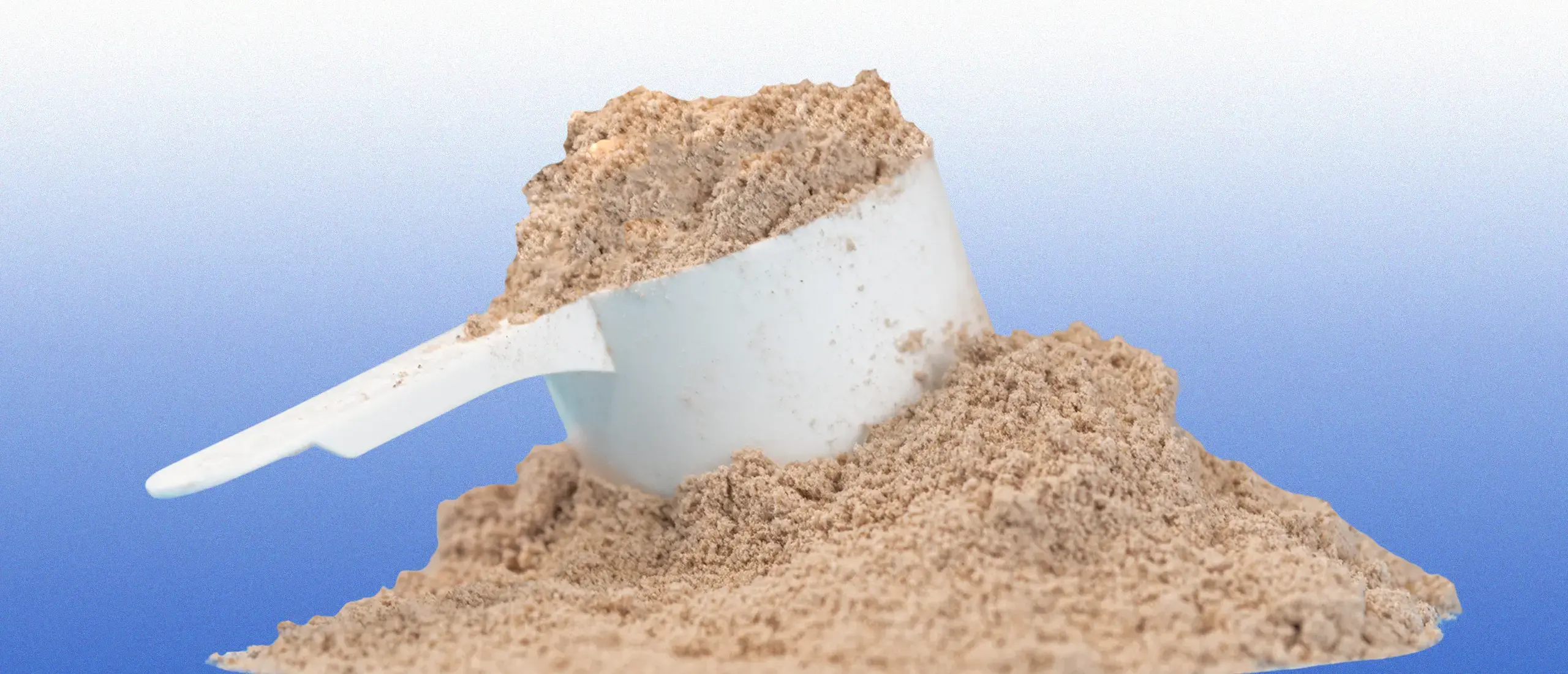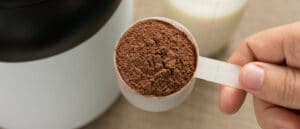How Many Protein Shakes Can You Drink in a Day? What the Science Says
- By Taneia Surles, MPH
- January 18, 2024
Fast Facts
- Protein shakes are among the simplest ways to boost your protein intake
- The amount of protein you need per day is highly dependent on your body, lifestyle, and goals
- Most people should stick to one or two protein shakes a day
Protein is a nutrient that encourages muscle growth, strengthens bones, improves your immune system, and much more (1). So, understanding how much your body needs to meet your health goals and prevent protein deficiency or overconsumption is essential.
And whether you’re a meathead trying to build huge muscle mass or simply trying to get a little more protein in your diet, protein powder, or, more specifically, protein shakes, can be extremely handy.
But how many protein shakes can you drink a day? Is there such a thing as too much protein in a day?
Don’t fret if you don’t know—we’ve done the work for you by speaking with registered dietitian nutritionists to find out.
About the Experts:
Kimberly Gomer, MS, RD/LDN is a registered dietician and nutritionist as well as the Director of Nutrition at Pritikin Longevity Center & Spa.
Diane Robison Johnson, MS, RDN, CSSD, is a sports dietician at the University of Tulsa.
How Much Protein Do You Need Per Day?
Before we can dig into the question of protein drinks per day, we have to establish how much protein a person really needs.
FDA recommendation
The Food and Drug Administration (FDA) states the recommended daily value (DV) of protein is 50 grams. If you’re unfamiliar with DV, it is simply the recommended amount of nutrients to consume or not exceed daily (2).
Research recommendation
Research suggests a variety of other ranges. A 2016 review reveals that the recommended dietary allowance (RDA) of protein for healthy adults engaging in little physical activity is 0.8 grams per kilogram of body weight. For optimal muscle and bone growth, recommended protein intake can range from 1.0 to 1.6 grams of protein per kilogram of body weight for adults engaging in minimal to intense physical activity (3).
Expert recommendation
These recommendations are helpful—but there’s no “one size fits all” approach to protein intake.
“The amount of protein we need a day depends on each individual’s health goals and issues,” says Kimberly Gomer, MS, RD/LDN, a registered licensed dietitian and nutritionist, and the Director of Nutrition at Body Beautiful Miami. “For example, someone recovering from an illness or surgery, someone who is an athlete, or someone trying to lose fat and/or gain muscle would have different protein needs.”
So, how do you find out what your individual protein needs are? Well, you’ll need to consider your ideal body goals and current body weight.
“For athletes and those trying to gain muscle and strength, take your ideal body weight and eat about that many grams of protein,” Gomer says. “If a person weighs 160 pounds but their healthy ideal body weight is 130, they should eat 130 grams of protein/day. This looks like about 40 grams of protein spread into four meals or three meals and a snack.”
Regardless of your health status, the 2020 – 2025 Dietary Guidelines for Americans recommends getting at least 10%, but no more than 35% of your daily calories from protein (4).
If you have any concerns regarding your protein intake, we recommend speaking with your healthcare provider or dietitian for professional advice.
How Many Protein Shakes Can You Drink Per Day?
According to Diane Robison Johnson, MS, RDN, CSSD, a sports dietitian at the University of Tulsa Dining Services, you should stick to one to two protein shakes a day.
“Protein shakes are not meant to replace meals, but rather should supplement what one is eating from whole foods, after workouts, as a snack, and before bed,” Johnson says.
You’ll need to know your daily intake to determine your protein shake limit.
“If you are on the lower end of the recommended protein intake, keeping your protein shake to one a day is probably the best,” Johnson adds. “But if you are on the higher end and looking to put on muscle mass, one to two a day is fine as long as you are consuming the majority of your protein from high-quality foods.”
As you may already know, protein shakes derive from protein powder. According to Gomer, you can consume too much protein powder beyond your daily recommended intake, which can cause some digestive problems.
“Consuming too much protein powder can cause digestive discomfort, including bloating, gas, and constipation,” Gomer says. “There is also an increased risk of dehydration since protein requires water for digestion and the elimination of waste products.
But don’t toss your favorite protein powder in the trash yet. Instead, try to incorporate other protein sources.
“It is ideal to have a variety of proteins in one’s diet,” Gomer adds.
Johnson recommends the following alternative protein sources you can consume alongside your protein shakes:
- Free-range and grass-fed meat and poultry
- Wild Alaskan fish
- Greek yogurt
- Organic eggs
- Legumes
- Nuts
- Seeds
Can You Eat Too Much Protein?
Yep, you can consume too much protein beyond your daily recommended amount. For one, an excess of protein may impose undue burden on the liver, kidney, and bones (5)
As we’ve stated before, everyone’s protein intake can vary—so what seems “too high” for one person may be just enough for someone else. Hyou jowever, consuming more than 2 grams per kilogram of your body weight daily is considered protein overconsumption.
“When consuming too much protein in one sitting, considered over 30-40 grams depending on your body weight, it is stored as fat or used as a much less efficient source of energy,” says Johnson.
If you happen to eat beyond your protein intake, you may experience some unpleasant symptoms.
“Too much protein in your diet will contribute to short-term effects like weight gain, dehydration, intestinal distress because it takes more energy for your body to metabolize protein; long-term effects include kidney problems and liver dysfunction,” Johnson explains.
Signs You’re Not Getting Enough Protein
Just as there’s a chance of consuming too much protein, you can also eat too little of the nutrient. Protein deficiency, a form of malnutrition, is when you don’t get enough protein in your diet (6).
Like protein overconsumption, your body will alert you of protein deficiency through various signs and symptoms.
According to Johnson, protein deficiency may lead to:
- Brittle hair and nails
- Feeling weak or hungry when appetite is not satisfied
- Weak immune system
- Mood disturbances
- Sleep problems
- Muscle weakness
- Bone fractures
The Bottom Line
We all need protein—but in different amounts based on age, gender, body weight, and goals. While it is a necessary nutrient, be cautious with protein—as with all macronutrients, you eat too little or too much of it, which can lead to some unpleasant symptoms. You can meet your protein goals with protein powder as a supplement, but also include protein-rich foods from natural sources. It’s generally fine to drink one or two protein drinks a day.
References
1. Harvard School of Public Health. Protein. https://www.hsph.harvard.edu/nutritionsource/what-should-you-eat/protein/
2. U.S. Food & Drug Administration. Daily Value on the Nutrition and Supplement Facts Labels. https://www.fda.gov/food/nutrition-facts-label/daily-value-nutrition-and-supplement-facts-labels
3. Wu, Guoyao (2016). Dietary protein intake and human health. https://pubmed.ncbi.nlm.nih.gov/26797090/#
4. USDA. Dietary Guidelines for Americans. https://www.dietaryguidelines.gov/sites/default/files/2021-03/Dietary_Guidelines_for_Americans-2020-2025.pdf
5. Delimaris, Ioannis (2013). Adverse Effects Associated with Protein Intake above the Recommended Dietary Allowance for Adults. https://www.ncbi.nlm.nih.gov/pmc/articles/PMC4045293/
6. Emery et al (2021). Protein Deficiency. https://www.sciencedirect.com/topics/medicine-and-dentistry/protein-deficiency














